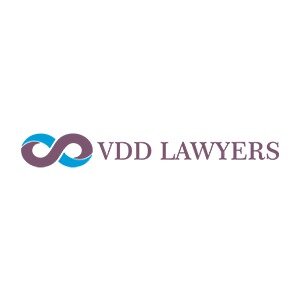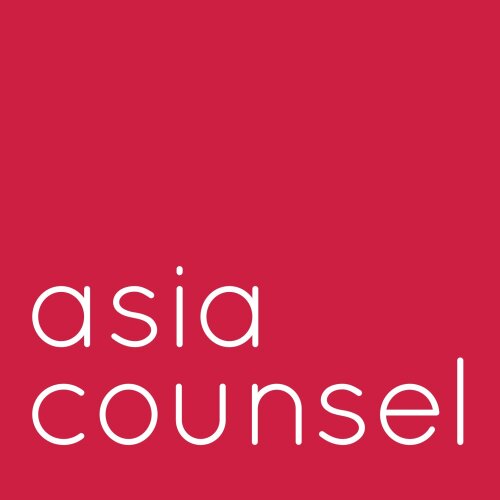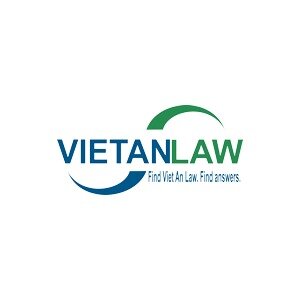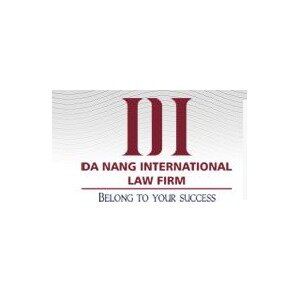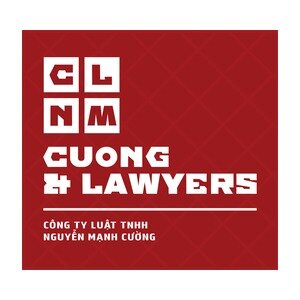Best Mining Law Lawyers in Vietnam
Share your needs with us, get contacted by law firms.
Free. Takes 2 min.
Or refine your search by selecting a city:
List of the best lawyers in Vietnam
About Mining Law in Vietnam
Mining Law in Vietnam governs the exploration, extraction, processing, and management of mineral resources throughout the country. The mining industry is a key sector of Vietnam’s economy, with rich reserves including coal, bauxite, gold, and various metals. However, mining operations are tightly regulated to ensure environmental protection, fair competition, and an equitable sharing of benefits with local communities. The primary legal framework for this sector is the Law on Minerals, alongside various decrees, circulars, and government decisions.
Why You May Need a Lawyer
Engaging in mining activities in Vietnam involves navigating complex regulations, obtaining permits, and complying with both national and local laws. Common situations where legal assistance is valuable include:
- Applying for mineral exploration or mining licenses
- Negotiating joint ventures or foreign investment arrangements
- Ensuring compliance with environmental regulations
- Managing disputes over land use or resource ownership
- Advising on taxes, royalties, and import-export procedures
- Transferring or acquiring mining rights
- Responding to inspections or addressing alleged violations
A lawyer can help minimize risks, ensure your interests are protected, and facilitate smoother business operations.
Local Laws Overview
Vietnam’s legal framework for mining is primarily set out in the Law on Minerals (last amended in 2022) and related guiding documents. Key points include:
- All mineral resources are owned by the state, and companies or individuals can only explore or mine through granted licenses
- Licenses are categorised as exploration, mining, or mining processing, each with specific application processes and requirements
- Environmental assessments and rehabilitation plans are mandatory before beginning operations
- The law includes requirements to consult and compensate affected local communities
- There are strict health and safety standards that must be observed
- Foreign investment is permitted, but subject to approval and additional regulatory oversight
- Failure to comply can result in sanctions, penalties, or suspension of licenses
Understanding and adhering to these laws is crucial for any successful mining venture in Vietnam.
Frequently Asked Questions
What government body regulates mining in Vietnam?
The Ministry of Natural Resources and Environment (MONRE) and subordinate provincial Departments of Natural Resources and Environment (DONRE) are primarily responsible for regulating and granting mining licenses.
Can foreigners own mining rights in Vietnam?
Foreign individuals or entities can participate in mining activities through joint ventures or wholly foreign-owned enterprises, but must obtain the necessary licenses and meet additional conditions set by the government.
What types of licenses are required for mining?
There are three principal types: Mineral Exploration Licenses, Mining Licenses, and Mineral Processing Licenses. Each license is required at different phases of a mining project.
How long does it take to obtain a mining license?
The licensing process can take several months, depending on the completeness of documentation, the type of minerals, environmental assessments, and consultations with local authorities and communities.
Are there environmental regulations for mining projects?
Yes. Projects must submit and receive approval for Environmental Impact Assessments (EIA) and commit to rehabilitation plans for post-mining land use. Environmental compliance is strictly monitored.
What taxes or royalties must be paid?
Mining entities must pay royalties on extracted minerals, value added tax (VAT), corporate income tax, and often land use fees or environmental fees, depending on the nature and location of the project.
How are disputes over mining rights resolved?
Disputes are first addressed through negotiation and mediation. If unresolved, matters can be taken to Vietnamese courts or, in some investment cases, to international arbitration if stipulated in investment agreements.
What happens if I don’t comply with mining laws?
Non-compliance can lead to administrative penalties, suspension or revocation of licenses, and criminal liability in severe cases. Authorities may also require compensation for environmental or community damage.
Can mining rights be transferred or sold?
Yes, with prior approval from the relevant government authority and provided the transferee meets legal requirements. The process involves applications, due diligence, and sometimes public disclosure.
Are there special considerations for small-scale mining?
Small-scale mining has a different licensing process, often regulated by provincial authorities, but must still comply with environmental, health, and safety standards.
Additional Resources
If you need more information or support regarding Mining Law in Vietnam, consider the following resources:
- Ministry of Natural Resources and Environment (MONRE) - for official guidelines and licensing information
- Provincial Departments of Natural Resources and Environment (DONRE) - for local procedures and community consultations
- Vietnam Bar Federation - for a list of qualified lawyers specializing in mining and environmental law
- Vietnam Chamber of Commerce and Industry (VCCI) - for business regulations and investment facilitation
- Vietnam Association of Mining Science and Technology - for industry updates and professional standards
Next Steps
If you are seeking legal assistance with Mining Law in Vietnam, start by clearly defining your objectives and gathering all relevant documents related to your intended mining project or inquiry. Research and compile a list of qualified legal professionals or firms with experience in mining law. Contact them for an initial consultation, during which you can discuss your needs, anticipate potential legal challenges, and establish a plan for moving forward. Engaging a knowledgeable lawyer early will help you navigate complex regulations, avoid costly mistakes, and achieve your business or personal goals within the framework of Vietnamese law.
Lawzana helps you find the best lawyers and law firms in Vietnam through a curated and pre-screened list of qualified legal professionals. Our platform offers rankings and detailed profiles of attorneys and law firms, allowing you to compare based on practice areas, including Mining Law, experience, and client feedback.
Each profile includes a description of the firm's areas of practice, client reviews, team members and partners, year of establishment, spoken languages, office locations, contact information, social media presence, and any published articles or resources. Most firms on our platform speak English and are experienced in both local and international legal matters.
Get a quote from top-rated law firms in Vietnam — quickly, securely, and without unnecessary hassle.
Disclaimer:
The information provided on this page is for general informational purposes only and does not constitute legal advice. While we strive to ensure the accuracy and relevance of the content, legal information may change over time, and interpretations of the law can vary. You should always consult with a qualified legal professional for advice specific to your situation.
We disclaim all liability for actions taken or not taken based on the content of this page. If you believe any information is incorrect or outdated, please contact us, and we will review and update it where appropriate.
Browse mining law law firms by city in Vietnam
Refine your search by selecting a city.








